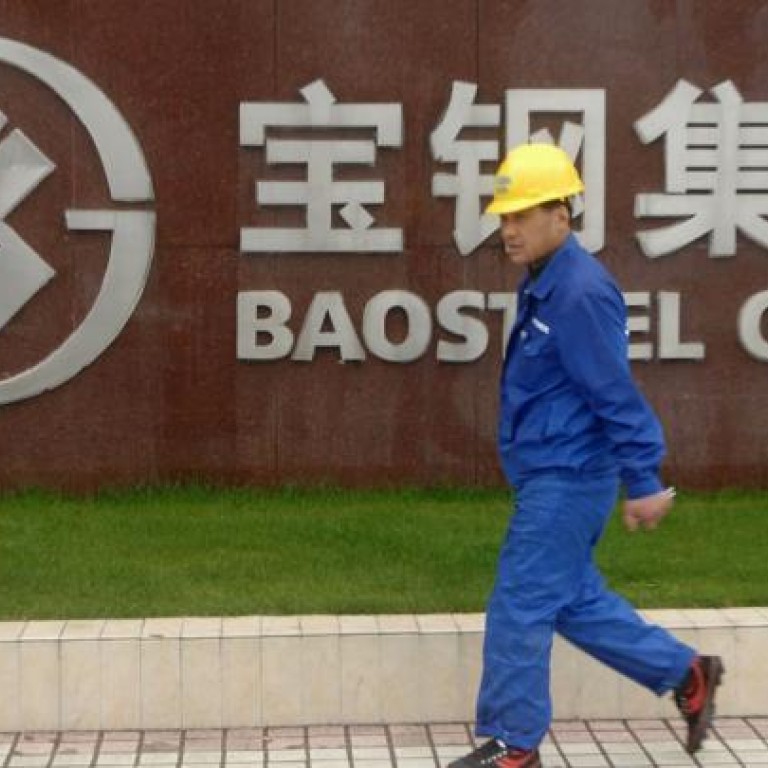
Baosteel moving plants out of Shanghai to cut pollution
Baosteel is moving production facilities out of the city, which is seeking to reorient its economy and reduce air pollution
Baosteel Group, the mainland's second-biggest steel producer, has begun moving part of its production facilities out of Shanghai in response to the city's efforts to reduce pollution.
In a pact with the municipal government signed in July, the steel giant pledged to cut iron and steel output in Shanghai by more than 12 million tonnes - about a third of its total output - over the next five to 10 years.
The facilities will be moved to other parts of the country, including Zhanjiang in Guangdong and Xinjiang, and new production lines will also be built outside Shanghai.
Shanghai residents are speculating that Baosteel's entire production process could be moved to underdeveloped areas, with China's commercial capital striving to transform itself into a global financial centre by shifting its focus from manufacturing to services.
Adopting the mantra "empty the cage and let the right birds in", the municipal government hopes to focus on creating environmentally friendly projects while shutting down heavily polluting factories.
Baosteel's profits represent about 6 per cent of the total net income generated by major Shanghai-based industrial companies. But its energy consumption has also accounted for about a quarter of the total used by the city's major industries, according to industry consultancy Mysteel.
The company's decision to relocate some steel mills sparked speculation that it would eventually follow in the footsteps of Beijing-based Shougang Group, which closed its mills in the capital and rebuilt in Caofeidian, a district in Tangshan , Hebei .
But sources with knowledge of Baosteel's thinking say that the steel giant will keep its major production lines in Shanghai.
Baosteel began building its first plant - in Shanghai's northern Baoshan district - in late 1978, following the central leadership's decision to adopt an opening-up policy. It has been one of the major contributors to Shanghai's economy for the past three decades, and provides more than 110,000 jobs.
Government researchers admit the reduction in Baosteel's local output will have an adverse impact on Shanghai's economy at a time when the city is already grappling with a severe slowdown.
The city's economic growth rate last year was the slowest among the mainland's 31 provinces, autonomous regions and municipalities.
Higher land and labour costs have hit local businesses hard, with some of them starting to shift their production to hinterland areas.
The municipal government wants to build Shanghai into an international financial and shipping centre by attracting huge amounts of foreign investment capital to the city's services sector, including in securities trading, banking and insurance.
But the yuan's lack of full convertibility is hampering the free flow of international capital into and out of China, and the ambitious plan has been dogged by slow progress.
The central government, which has the final say in Shanghai's plans to liberalise the finance sector, has also put on hold a plan to create an international board on the Shanghai stock exchange, preventing global corporate giants such as HSBC from listing shares in China's market.
Baosteel's relocation plans are also sparking protests from residents of Zhanjiang, who fear they will be left jobless and homeless after being forced to move out of their hometown to make way for the planned steel plants.
Earlier this year, a villager in Zhanjiang attacked police and government officials with a knife, killing one police officer, when they tried to remove some trees to make way for the steel factory.
And at the end of the day, the relocation of Baosteel's plants from Shanghai to other parts of the country will only shift the pollution problem from Shanghai to places like Zhanjiang.
Baosteel will also have to convince its employees of the benefits of relocating their families to the new production sites.

